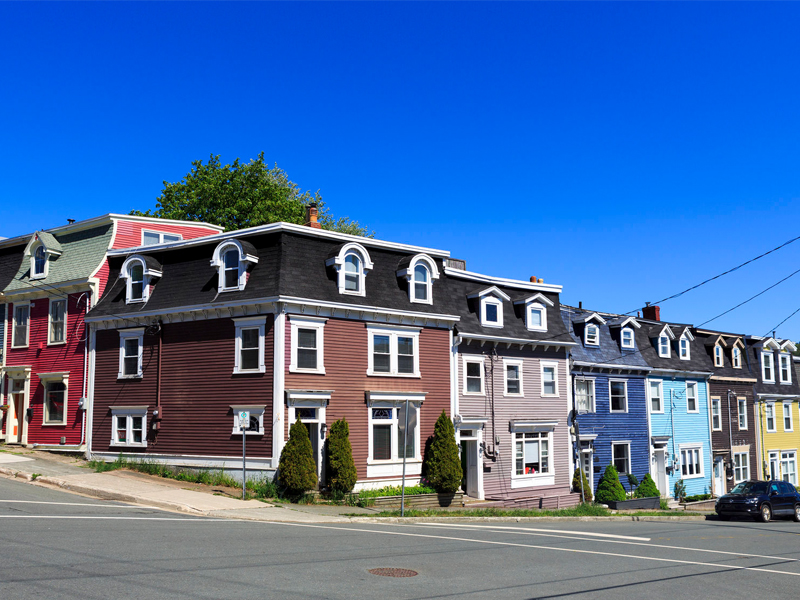
This article appears in the November 2022 issue of Investment Executive. Subscribe to the print edition, read the digital edition or read the articles online.
The federal government’s tax proposals to address housing affordability may do little to help Canadians struggling to save for a home.
Tax measures such as the anti-flipping rule and the Tax-Free First Home Savings Account (FHSA) set to begin in 2023 “would have been helpful a year ago, [but] they’re less helpful now because the house market has already turned,” said Sal Guatieri, senior economist and director with Bank of Montreal, who projects that Canadian housing prices will fall by 20% from peak by next summer. “The only way that affordability will get better now is through lower house prices.”
Elliot Hughes, senior advisor with Ottawa-based Summa Strategies Canada Inc., said the government’s tax measures to address affordability “may have been overtaken by events and may not be fit for purpose anymore.”
“The challenge with such a dynamic market, such as the housing market in Canada, is trying to come up with solutions to problems that don’t exist six, nine or 12 months later,” said Hughes, who was the deputy director of tax policy for former finance minister Bill Morneau.
In April, a month after the Bank of Canada began raising interest rates, the Liberal government released its “Making Housing More Affordable” plan as a key part of its federal budget. The plan included measures to encourage saving for a down payment and multigenerational living; to discourage speculation and foreign investment; to give more power to homebuyers and renters; and to boost housing supply.
But with Canadian home prices down by about 7% since the February peak and mortgage rates spiking, measures to curb speculation, such as a tax on house flippers or a two-year ban on foreign investment in Canadian housing, appear out of step.
“[An anti-flipping rule] still might have some use, but right now flipping does not seem to be an issue,” said Mike Moffatt, assistant professor with the Ivey Business School at Western University in London, Ont. “There’s no liquidity in this market.”
Said Gautieri: “Foreign investment was never the key driver of house prices because it’s a relatively small share,” and given market conditions, foreign investors are “not keen to jump into the housing market anyway.”
The Liberals’ initiatives to boost housing inventory, including $4 billion in financial support to cities that facilitate new housing construction, could be useful, Moffatt said, as “the solutions [to affordability] are on the supply side.”
However, tax measures taken by successive federal governments to help Canadians purchase a home “probably pushed us in the wrong direction” by stoking demand, he said.
For example, the Liberals are proposing to double the First-Time Home Buyers’ Tax Credit amount, a program introduced by the Conservatives in 2009, to $10,000 from $5,000, beginning this year.
“We spent the last decade or so, both with the Harper government and the Trudeau government, coming out with all kinds of boutique tax credits to help on housing, and I don’t think any of them have really worked,” Moffatt said.
The proposed FHSA, a registered plan that combines features of the RRSP and TFSA to help first-time homebuyers put aside up to $40,000 for a down payment, may be beneficial for savers, said Jason Heath, managing director with Objective Financial Partners Inc. in Markham, Ont.
However, Heath said the government could have directed additional support to would-be homeowners by tweaking existing programs, such as the Home Buyers’ Plan or the TFSA, instead of going through the trouble of creating a new registered plan.
“It’s a shame to introduce yet another account to confuse lay people with,” Heath said. “A lot of people have a hard time figuring out RRSPs and TFSAs already.”
Jennifer Lucier, a Canadian tax partner with BDO Canada LLP in Oakville, Ont., said “people are going to need cash” to take full advantage of many of the government’s housing affordability tax credits and programs, including the proposed FHSA.
First-time homebuyers without access to savings will have to contribute when and what they can to the new account while paying rent or living with family. Any interest on money borrowed to contribute to the proposed FHSA would not be tax-deductible.
“I would question whether [the FHSA] is really going to help overall the housing affordability issues that we are seeing,” Lucier said.
Hughes believes the federal government’s current focus has shifted from housing to geopolitical uncertainty and cost-of-living issues more generally. In September, the Liberals announced several inflation-relief measures, including a $500 one-time tax-free top-up to the Canada Housing Benefit for low-income renters.
“I don’t suspect we’ll see much on housing in the fall [economic] statement,” Hughes said, suggesting that an update in the 2023 budget would be more likely.
Hughes said it may be appropriate for the government to reassess some of the housing measures it first proposed in Budget 2022 and adjust them accordingly. However, there may be value in keeping measures that address “structural challenges and structural problems” in housing, he said.
“I think it’s the job of the federal government to have a little bit of a longer view,” Hughes said.